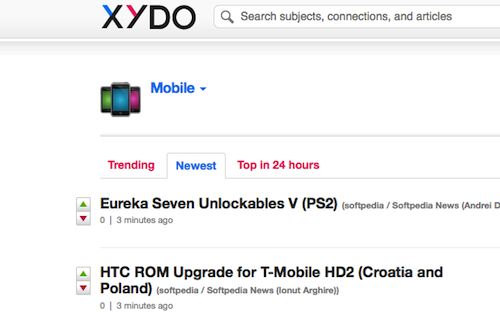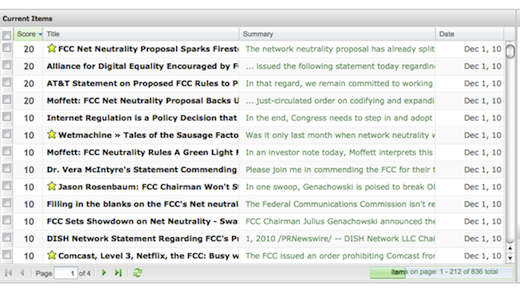Over the last few months, recommendation startups have sprouted up—getglue, Hunch, Foodspotting, Parse.ly, Miso, Xydo (in beta), Bubbalon, etc.—to offer suggestions about restaurants, books, web sites, or just about anything in this world.
If you add in Facebook (with its like button, and lots of 3rd-party rating apps ), Amazon, and NetFlix, there’s enough of a universe to merit a service that rates and recommends recommendation services. There’s a startup, no doubt, working this out.
All share the idea that there’s wisdom in the crowd, and to various extents use stats about the mob to algorithmically classify tastes—clustering, nearest neighbor,decision trees—and then generate suggestions. There’s a nice summary of these collaborative filtering techniques in the reference section below.
What about a more conventional, common-sense approach that derives wisdom from actual knowledge of the subject?Continue reading




 Mobile World Congress is happening now in Barcelona. As much as we’d like to buy our paella salads at the La Boqueria before a day on the trade show floor, the editorial team is instead stuck here in NJ.
Mobile World Congress is happening now in Barcelona. As much as we’d like to buy our paella salads at the La Boqueria before a day on the trade show floor, the editorial team is instead stuck here in NJ.
 I was finally able to spend quality time with the Parse.ly Reader, an app designed to show some of the capabilities of the underlying Parse.ly platform, called P3, which is currently in beta. To be clear, unlike many other players in the recommendation patch (GetGlue, Xydo, Hunch, etc.), this NYC-based startup is not in the business of providing a direct service to users.
I was finally able to spend quality time with the Parse.ly Reader, an app designed to show some of the capabilities of the underlying Parse.ly platform, called P3, which is currently in beta. To be clear, unlike many other players in the recommendation patch (GetGlue, Xydo, Hunch, etc.), this NYC-based startup is not in the business of providing a direct service to users.